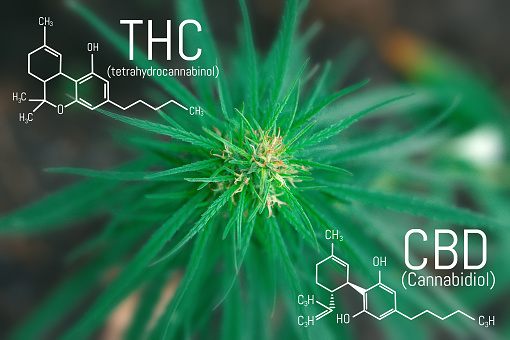CBD Dosing, CBD Uses, General, THC
What is the “entourage effect” and why full spectrum extracts provide more therapeutic health benefits
The entourage effect is a term used to describe the synergistic interaction of various components in cannabis plants that work together to produce therapeutic effects. In essence, the entourage effect suggests that the effects of cannabis are greater than the sum of its individual components. This is because the various compounds found in cannabis work together in a way that enhances their individual effects and produces a more comprehensive therapeutic effect.
Cannabis plants contain more than 400 different compounds, including cannabinoids, terpenes, and flavonoids. Cannabinoids are the most well-known compounds found in cannabis, and include THC and CBD, but there are many other lesser-known cannabinoids as well. Terpenes are aromatic compounds that give cannabis its distinctive smell, and are also found in many other plants. Flavonoids are phytonutrients that give plants their vibrant colors, and have been found to have anti-inflammatory and antioxidant properties.
The entourage effect is thought to occur because of the interaction between these various compounds. For example, THC is known for its psychoactive effects, but when it is combined with CBD, the psychoactivity is reduced. This is because CBD has a modulating effect on THC, and can help to counteract some of its negative side effects, such as anxiety and paranoia. Additionally, terpenes have been found to have a wide range of therapeutic effects on their own, including anti-inflammatory, anti-anxiety, and anti-depressant effects.
The entourage effect is particularly important when it comes to the therapeutic use of cannabis. While THC and CBD are the most well-known cannabinoids, there are many others that have potential therapeutic benefits as well. For example, cannabinol (CBN) has been found to have sedative effects and may be useful for treating insomnia. Cannabigerol (CBG) has been found to have anti-inflammatory properties and may be useful for treating conditions such as Crohn’s disease and irritable bowel syndrome.
In addition to the potential therapeutic benefits of individual compounds, the entourage effect suggests that combining multiple compounds in cannabis may produce even greater therapeutic benefits. For example, a study published in the Journal of Pharmacology and Experimental Therapeutics found that a combination of THC and CBD produced greater anti-inflammatory effects than either compound alone. Similarly, a study published in the Journal of Pain found that a combination of THC and terpenes produced greater pain-relieving effects than THC alone.
There are many factors that can influence the entourage effect, including the ratios of different compounds in a given strain of cannabis, as well as the method of consumption. For example, smoking or vaporizing cannabis can produce different effects than consuming cannabis edibles or tinctures. Additionally, the entourage effect may be influenced by individual differences in genetics and metabolism.
Despite the potential therapeutic benefits of the entourage effect, much of the research on cannabis has focused on individual compounds, rather than on the interaction between compounds. This is largely due to the fact that cannabis is still illegal in many parts of the world, making it difficult to conduct research on the plant. However, as attitudes toward cannabis continue to change and more countries legalize the plant for medical and recreational use, it is likely that we will learn more about the entourage effect and how it can be harnessed for therapeutic purposes.
In conclusion, the entourage effect is a term used to describe the synergistic interaction of various components in cannabis plants that work together to produce therapeutic effects. While THC and CBD are the most well-known compounds found in cannabis, there are many other cannabinoids, terpenes, and flavonoids that may have potential therapeutic benefits as well. The entourage effect suggests that combining multiple compounds in cannabis may produce even greater therapeutic benefits than individual compounds alone. While much of the research on cannabis has focused on individual compounds, it is likely that future research will focus more on the interaction between compounds and the entourage effect. This will help to better understand how different strains of cannabis may be used to treat different medical conditions and individual symptoms. Furthermore, the entourage effect highlights the importance of using whole-plant cannabis extracts rather than isolated compounds in order to achieve the maximum therapeutic benefits of cannabis. Overall, the entourage effect is an important concept for understanding the potential therapeutic benefits of cannabis and for guiding future research in this field.

